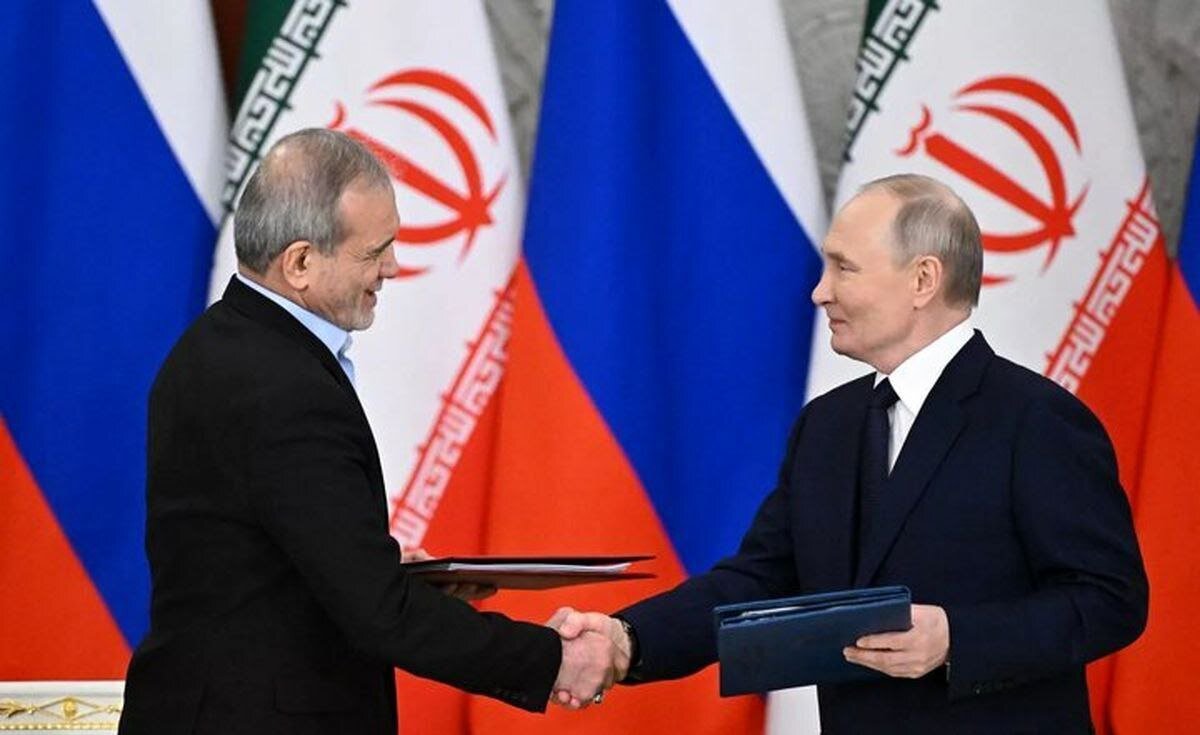Iran, Russia to foster health ties under strategic partnership

TEHRAN –The Treaty on the Comprehensive Strategic Partnership between Russia and Iran covers several core areas including the health sector.
Iranian President Masoud Pezeshkian and Russian President Vladimir Putin inked the agreement during an official signing ceremony in Moscow on Friday.
The two countries will boost collaborations on organizing state-run health system and managing activities in the health sector, preventing and treating communicable and non-communicate diseases, protecting mother and child health, establishing state regulations on distributing medicines and medical devices, promoting a healthy lifestyle, conducting medical researches, utilizing digital technologies in the healthcare system, and providing professional training to health experts, health ministry website reported.
The two countries will also strengthen cooperation in the fields of food hygiene, healthcare security, and epidemiology based on national laws and policies for the prevention and control of communicable diseases complying with international treaties.
The two sides will also enhance long-term and constructive relations in higher education, science, technology, and innovation; implement joint scientific and technical projects, and develop interactions among interested educational and scientific institutions.
Exchanging professors and students, sharing scientific and technical knowledge, scientific literature, periodicals, and bibliographies, as well as holding joint conferences, meetings, and exhibitions were among other parts of the agreement.
Cooperation in medical equipment sector
In May 2024, Iran and Russia agreed to enhance their cooperation by conducting joint projects in the medical equipment sector.
A delegation of Russian officials visited the Iranian Research Organization for Science and Technology this morning to discuss potential ways to strengthen the cooperation, IRNA reported.
The Russian delegation expressed interest in collaborating with Iran on technology commercialization of knowledge-based products in the field of medical equipment.
During the meeting, the deputy science minister, Hassan Zamanian, for his part, highlighted the positive relationship between Iran and Russia, stating, “With the establishment of the international science and technology Park, Iran has succeeded in boosting collaborations with various countries, particularly Iran’s neighbors, including Russia, through fruitful interactions and technology exchanges,” Zamanian added.
Referring to the establishment of the Medicinal Chemistry Research Institute, the official elaborated on the capabilities and future plans of the organization in producing medical equipment and rare medicines, as well as the commercialization of manufactured products.
Visiting prominent projects in the field of medical equipment, such as manufacturing dialysis machines, portable laboratories, and angiography equipment at the Electrical and Electronics Research Institute, the delegation gained insight into the scientific capabilities of the Iranian Research Organization for Science and Technology and International Science and Technology Park.
In initial negotiations, the Russian officials asked for the implementation of similar projects in Russia.
Both sides have already made agreements for the implementation of joint projects as well as the establishment of related companies from each country in the respective international technology parks.
On March 1, a comprehensive document between the Islamic Republic of Iran and the Russian Federation was signed by Deputy Health Minister Mohammad-Hossein Niknam and his Russian counterpart Sergei Glagolev.
The agreement was signed on Friday, during the closing ceremony of the 17th Joint Economic Committee meeting which was held in Tehran.
The memorandum of understanding was compiled following several rounds of technical negotiations between the ministries of health of the two countries.
It laid the groundwork for cooperation between the parties in various fields, including joint supply and production of medicines and medical equipment, modern and digital technologies, and academic cooperation, the Health Ministry website reported.
MT/MG
